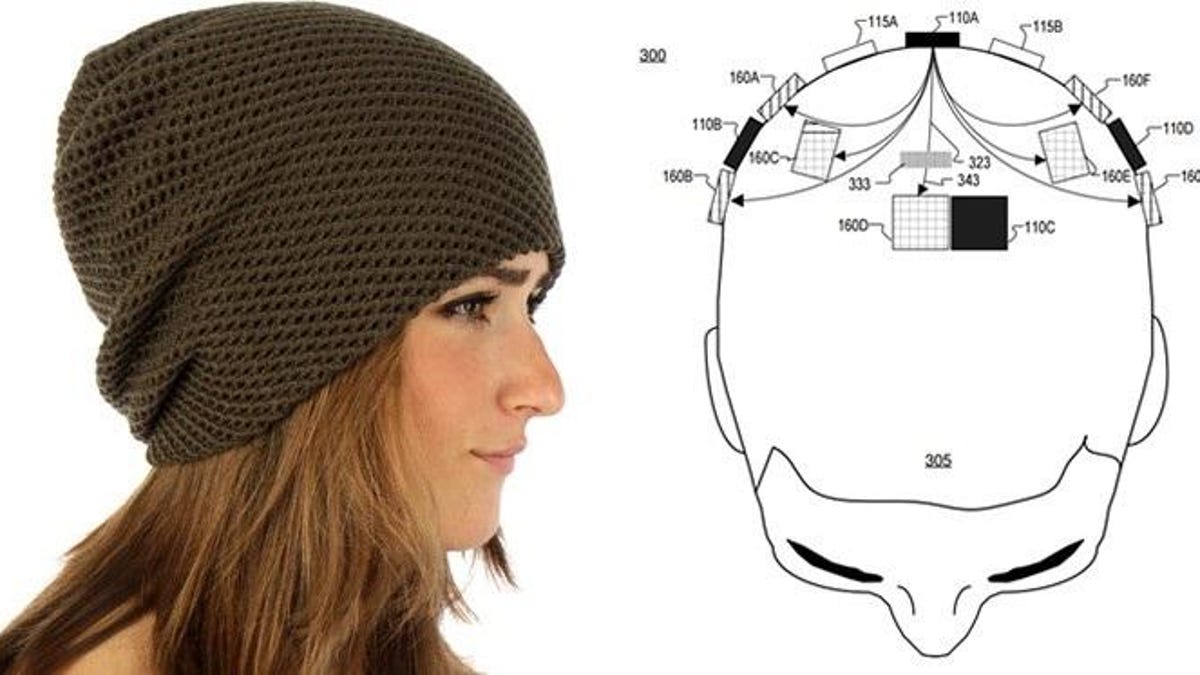Former Facebook exec wants to make us telepathic by 2025
The founder of a new startup is working on a "thinking cap" that could see inside our minds.

A literal "thinking cap" could read our minds within a decade.
Reading someone's mind might be as easy as putting on a hat.
Former Facebook executive Mary Lou Jepsen says she hopes to make communicating telepathically happen relatively soon.
Last year Jepsen left her job heading up display technology for the Oculus virtual reality arm of Facebook to develop new imaging technologies to help cure diseases. Shortly thereafter she founded Openwater, which is developing a device that puts the capabilities of a huge MRI machine into a lightweight wearable form. According to the startup's website:
"Openwater is creating a device that can enable us to see inside our brains or bodies in great detail. With this comes the promise of new abilities to diagnose and treat disease and well beyond - communicating with thought alone."
This week Jepsen went further and suggested a timeframe for such capabilities becoming reality.
"I don't think this is going to take decades," she told CNBC. "I think we're talking about less than a decade, probably eight years until telepathy."
The details of exactly how all this will work are a little murky, and Openwater says it needs to file for patents before it will publish a peer reviewed proof of feasibility and eventually launch a product. But Jepsen, who has also spent time at Google X, MIT and Intel, says the basic idea is to shrink down the huge MRI machines found in medical hospitals into flexible LCDs that can be embedded in a ski hat and use infrared light to see what's going on in your brain.
"Literally a thinking cap," Jepsen explains.
She sees it as a potental way to speed up human communication, which is limited to how fast we can flap our jaws, type or tap out a message. The idea is that communicating by thought alone could be much faster and even allow us to become more competitive with the artificial intelligence that is supposedly coming for everyone's jobs very soon.
It's an idea that Elon Musk's company, Neuralink, is also pursuing. But Jepsen points out that her approach is non-invasive and doesn't require brain implants or injections of nanobots into the bloodstream.
Still, it remains to be seen exactly what the telepathic experience that Jepsen is pursuing would actually be like. It's built upon scientific studies that have used fMRI brain scans to decode visual thoughts, but so far that research hasn't produced anything like we might imagine telepathy to be or have seen it portrayed as in science fiction.
Scientists have been able to look at MRI scans and identify if people are thinking about familiar objects like bananas and even some more complex thoughts, which is really cool, but it's not as if a person's thoughts can be heard, seen or replicated in the same way they were experienced by the person thinking them. At least not yet, with a high degree of accuracy.
Even if Jepsen and Openwater can make such a thing a reality by 2025, a beanie hat that can read your mind also sounds a bit like something from an authoritarian dystopia. She says they're already considering such concerns in the design of the device.
"We're trying to make the hat only work if the individual wants it to work, and then filtering out parts that the person wearing it doesn't feel it's appropriate to share."
That's good, because few things sound more terrifying than telepathy without filters.
Technically Literate: Original works of short fiction with unique perspectives on tech, exclusively on CNET.
Crowd Control: A crowdsourced science fiction novel written by CNET readers.

